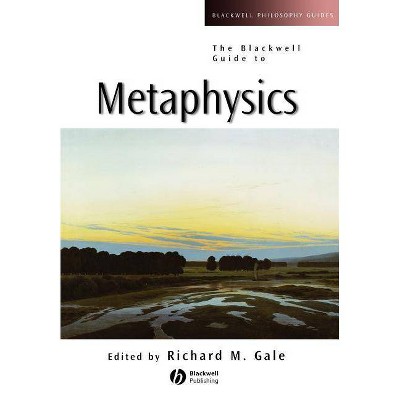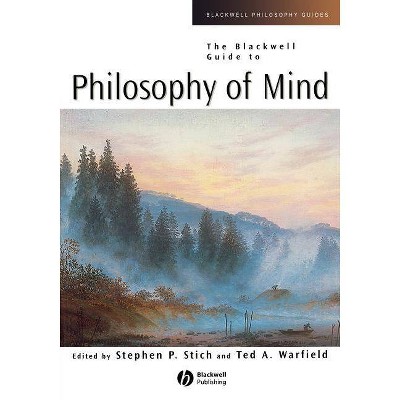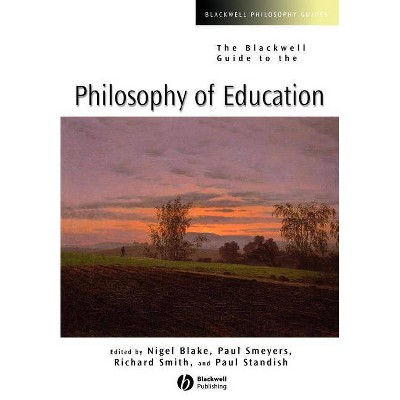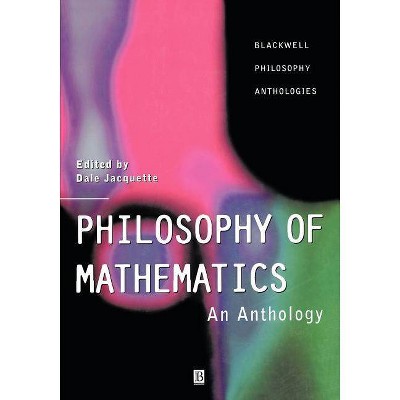The Blackwell Guide to the Philosophy of Computing and Information - (Blackwell Philosophy Guides) by Luciano Floridi (Paperback)
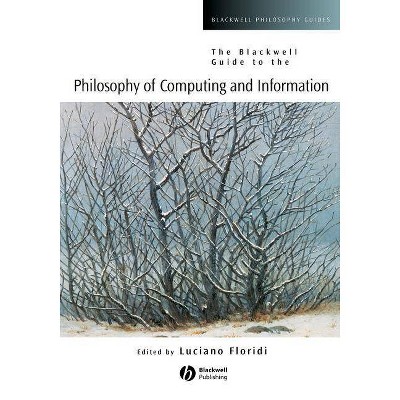
Similar Products
Products of same category from the store
AllProduct info
<p/><br></br><p><b> Book Synopsis </b></p></br></br>This <i>Guide</i> provides an ambitious state-of-the-art survey of the fundamental themes, problems, arguments and theories constituting the philosophy of computing.<br /> <ul> <br /> </li> <li>A complete guide to the philosophy of computing and information.<br /> </li> <li>Comprises 26 newly-written chapters by leading international experts.<br /> </li> <li>Provides a complete, critical introduction to the field.<br /> </li> <li>Each chapter combines careful scholarship with an engaging writing style.<br /> </li> <li>Includes an exhaustive glossary of technical terms.<br /> </li> <li>Ideal as a course text, but also of interest to researchers and general readers.</li> </ul><p/><br></br><p><b> From the Back Cover </b></p></br></br>This <i>Guide</i>provides an ambitious, state-of-the-art survey of the themes, problems, arguments, and theories constituting the innovative field of the philosophy of computing and information. Written by an international group of leading experts, the 26 newly commissioned chapters present a complete, systematic, and critical introduction to a wide range of topics, including computer ethics, internet culture, digital art, cybernetics, and hypertext theory.<br /> <p><br /> </p> <p>Combining careful scholarship and lucid exposition, each chapter serves as a self-standing introduction to its topic. Supporting online resources - including an exhaustive glossary of technical terms, expanded further reading sections, and a wide-ranging introduction explaining the nature of the new informational paradigm in philosophy - can be found at http: //www.blackwellpublishing.com/pci<br /> </p> <p>The <i>Guide</i> offers students a first foundation for understanding the philosophy of computing and information. It will also engage those general readers who are curious about the new computational and informational turn in philosophy, and researchers interested in broadening their experience.</p><p/><br></br><p><b> Review Quotes </b></p></br></br><br><i>The Blackwell Guide to the Philosophy of Computing and Information</i> is a rich resource for an important, emerging field within philosophy. This excellent volume covers the basic topics in depth, yet is written in a style that is accessible to non-philosophers. There is no other book that assembles and explains systematically so much information about the diverse aspects of philosophy of computing and information. I believe this book will serve both as an authoritative introduction to the field for students and as a standard reference for professionals for years to come. I highly recommend it. <i>James Moor, Dartmouth College</i> <br /> <p>There are contributions from a range of respected academics, many of them authorities in their field, and this certainly anchors the work in a sound scholarly foundation. The scope of the content, given the youthfulness of the computing era, is signigficant. The variety of the content too is remarkable. In summary this is a wonderfully fresh look at the world of of computing and information, which requires its own philosophy in testimony that there are some real issues that can exercise the mind. <i>Reference Reviews</i><br /> </p> <p>The judicious choice of topics, as well as the degree of detail in the various chapters, are just what it takes neither to deter the average reader requiring this <i>Guide, </i> nor to makeit unfeasible placing this volume in the hands of students. Floridi's book is clearly a valuable addition to a worthy series. <i>Pragmatics & Cognition</i></p><br><p/><br></br><p><b> About the Author </b></p></br></br><b>Luciano Floridi</b> is Associate Professor of Logic and Epistemology at the University of Bari and Markle Foundation Fellow at the University of Oxford, where he is a member of the Faculty of Philosophy and of the Sub-Faculty of Computing. He is the author of <i>Sextus Empiricus: The Recovery and Transmission of Pyrrhonism </i>(2002), <i>Philosophy and Computing: An Introduction</i> (1999), <i>Internet: An Epistemological Essay</i> (1997), and <i>Scepticism and the Foundation of Epistemology: A Study in the Metalogical Fallacies </i>(1996).
Price History
Price Archive shows prices from various stores, lets you see history and find the cheapest. There is no actual sale on the website. For all support, inquiry and suggestion messagescommunication@pricearchive.us
